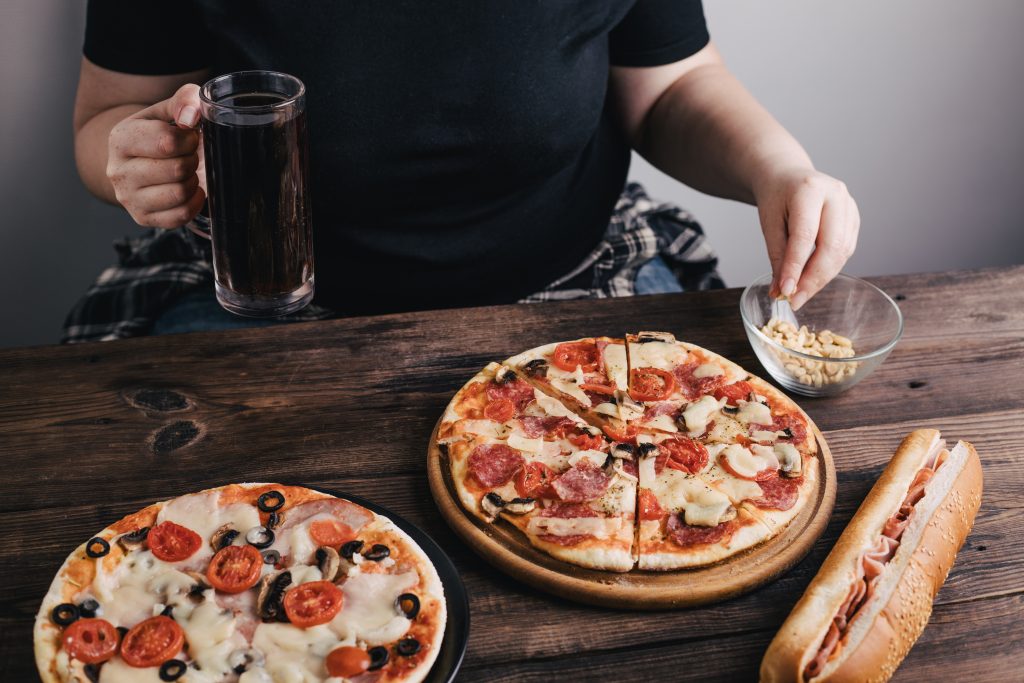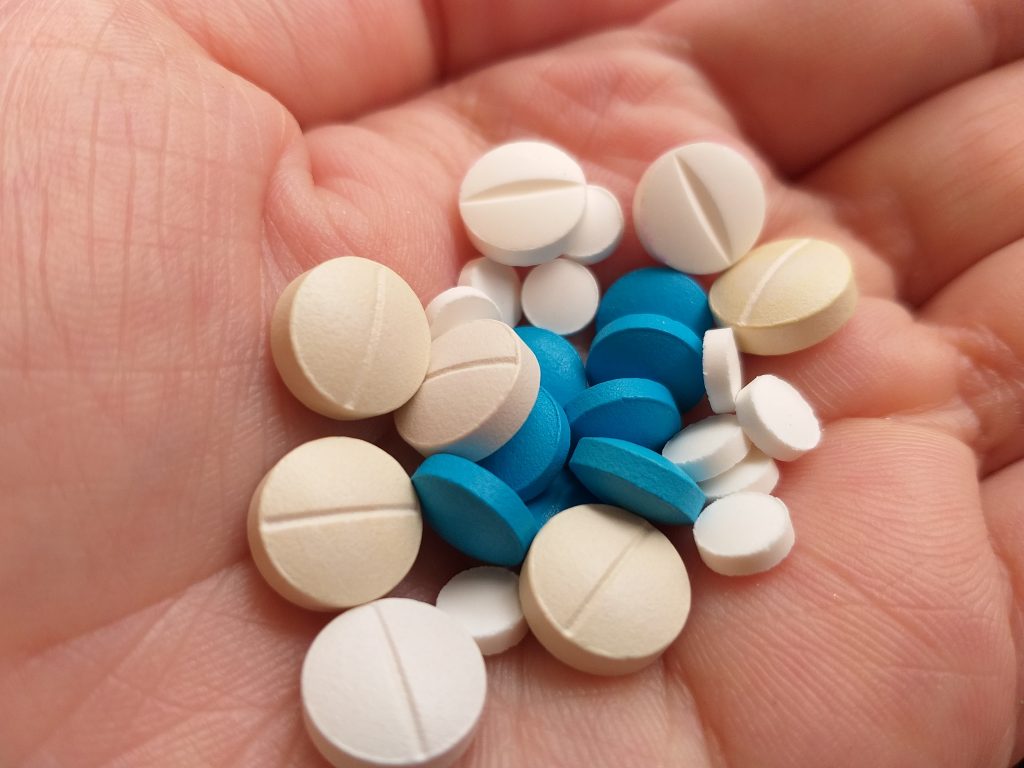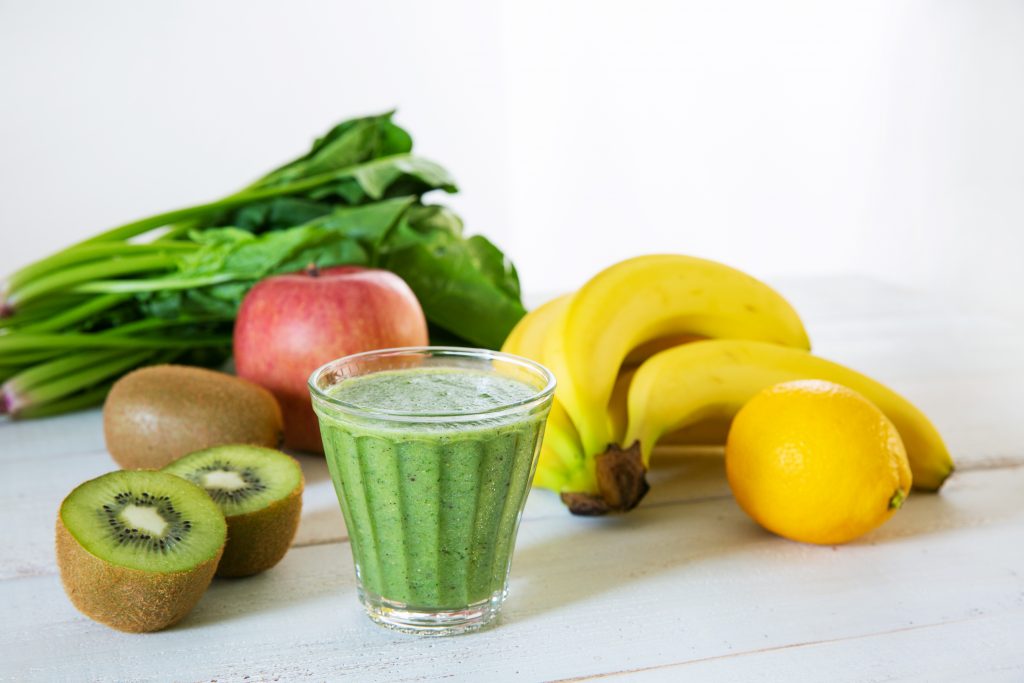Reading Time: 10 minutes
Constipation is defined as changes in the frequency, volume, weight, consistency and ease of passage of the stool.
As food normally moves through your digestive tract, your intestines gradually absorb the nutrients. The partially digested food (waste) that passes from your small intestine to your large intestine becomes your stool. Your colon absorbs water from this waste, which makes it more solid. If you have constipation, food may move too slowly through your digestive tract. This gives your colon more time — too much time — to absorb water from the waste. The stool becomes dry, hard and difficult to push out.
Constipation happens because your colon (large intestine) absorbs too much water from your stool. This dries it out, making it hard in consistency and difficult to push out of your body.
Risk factors
Constipation is common among all ages and populations… Symptoms of constipation are observed in About 16 out of 100 adults and about 33 out of 100 adults aged 60 and above.
Certain people are predisposed:
- Pregnant women or women immediately after delivery.
- Geriatric people
- Non-Caucasians
- People who eat little to no fibre
- People with preexisting health issues, including functional gastrointestinal disorders.
- Being dehydrated
- Getting little or no physical activity
- People on certain medications, including sedatives, opioid pain medications, some antidepressants or anti hypertensives.
- People with a mental health condition such as depression or an eating disorder.

Causes
Constipation can happen with lifestyle changes. For example, your bowel movements can change
- If you’re expecting
Progesterone, the hormone elevated during pregnancy, relaxes the intestines, or bowel, so that they don’t work as hard to squeeze waste out through your body. As the intestines absorb the water from the waste, it becomes dried out and hard to pass when you try to poop.
- Ageing –
With age, the prevalence of constipation tends to increase. Up to 40% of older people in the community and up to 60% of those in institutions may experience constipation.
Though the exact cause of this remains unclear, it’s possible that as with aging, food takes longer to pass through the digestive tract. Many people also become less mobile, which may also contribute to constipation. Other causes may include Medical issues, medications, and a low intake of fibreor water.
- Long travels
Travel changes a person’s routine. This can affect the digestive system. Eating meals, going to bed, and using the bathroom at different times than usual could increase the risk of constipation.
- Ignoring the urge to defecate
Ignoring the urge to have a bowel movement, may gradually drive the urge away until people no longer feel the need to go.
However, the longer the delay, the drier and harder the stool will become, increasing the risk of fecal impaction and constipation.
- Changing medication
- Sudden change in eating habits

Certain health and nutrition problems can cause constipation
- Not eating enough fibre- This is because fibrepromotes regular bowel movements, especially when a person combines it with proper hydration.
- Dehydration , not drinking enough liquids
- Decreased physical activity
- Immobility – People who spend several days or weeks in bed or sitting in a chair may have a higher risk of constipation.
- Celiac disease
- Neurological conditions: Multiple sclerosis, Parkinson’s disease, stroke, spinal cord injuries, and chronic intestinal pseudo-obstruction can lead to constipation.
- Metabolic diseases , such as diabetes
- Conditions that involve hormonal function, electrolytes, or renal function: These include uremia, hypercalcemia, and hypothyroidism.
- Inflammatory diseases, such as diverticular disease or proctitis
- Intestinal obstructions, including anorectal blockage and tumors
- Anatomical problems of the digestive tract
- Colorectal problems
- Some health conditions that affect the colon can impede and restrict the passage of stool, leading to constipation, such as
- cancerous tumors, a hernia, scar tissue, diverticulitis
- colorectal stricture, which is an abnormal narrowing of the colon or rectum
- inflammatory bowel disease (IBD)
- Intestinal blockage: This can occur if a tumor blocks or squeezes part of the digestive system.
- Conditions that affect the digestive system: Constipation can occur with celiac disease, IBD, and other inflammatory conditions.
Some medications
- Some medications can also increase the risk of constipation. These include:
- pain relief drugs: including codeine, oxycodone and hydromorphone
- antidepressants: such as amitriptyline and imipramine
- Certain anticonvulsants: Examples include phenytoin and carbamazepine
- Calcium channel blockers: These are antihypertensives, including diltiazem and nifedipine.
- Antacids that contain aluminum and calcium.
- Diuretics: These remove excess fluid from the body. They include hydrochlorothiazide and furosemide.
- Iron supplements: Doctors prescribe these to treat iron deficiency anemia.
Irritable bowel syndrome – C
Irritable Bowel Syndrome (IBS) is a common digestive disorder affecting 7-21% of the general population. IBS-C is a type of IBS in which abdominal discomfort or bloating happens with constipation. A person with IBS – c may experience:
- abdominal pain
- bloating
- distension
- changes in the frequency or consistency of stools
With IBS, constipation can fluctuate over time. When constipation is absent, there may instead be loose stools or diarrhea.
Overuse of laxatives
Worried about their bowel movements, some people take laxatives to get regular stools. Laxatives can help with bowel movements, but regular use of certain laxatives allows the body to get used to their action, causing a person to continue taking laxatives when they no longer need them. The person may also need higher doses to get the same effect.
This means that the more a person depends on laxatives, the greater their risk of constipation when they stop using them.
Not drinking enough water
The large intestine soaks up water from your food waste. If you don’t have enough water in the body, you have hard stools that are difficult to pass. It is important to note that some liquids can increase the risk of dehydration and make constipation worse for some people. For example, those who are prone to constipation should limit their intake of caffeinated sodas, coffee, and alcohol.
Medical conditions
Outlet dysfunction constipation – This is a defect in the coordination of your pelvic floor muscles. These muscles support the organs within your pelvis and lower abdomen. They’re needed to help release poop.
Obstructed defecation syndrome – Complex or unexplained causes may be preventing you from pooping normally.
Intestinal pseudo-obstruction – Sometimes, the motor system in your colon can become temporarily paralyzed (as in paralytic ileus or Ogilvie syndrome).
Lazy bowel syndrome – This is when your colon contracts poorly and retains poop.
The main symptoms of constipation are:
- Passing fewer than three stools a week
- Difficulty passing stool
- Straining when passing stool
- passing less stool than usual
- lumpy, dry, or hard stool
- A sensation of blockage in your rectum that prevents bowel movements.
- Feeling as though you can’t completely empty the stool from your rectum.
- Needing help to empty your rectum, such as using your hands to press on your abdomen and using a finger to remove stool from your rectum.
Other symptoms include:
- pain and cramping in the abdomen
- feeling bloated
- nausea
- a loss of appetite
Constipation may be considered chronic if you’ve experienced two or more of these symptoms for the last three months.
Complications of chronic constipation
Damage that can arise as a result of severe constipation includes:
Rectal bleeding after straining
Anal fissure, which is a small tear around the anus
Symptomatic hemorrhoids (piles), which are swollen, inflamed blood vessels in the anus
Fecal impaction – (Stool that can’t be expelled) which occurs when dried stool stagnates and collects in the rectum and anus, potentially leading to a mechanical obstruction
Rectal prolapse – Straining to have a bowel movement can cause a small amount of the rectum to stretch and protrude from the anus.
Other possible complications include a reduced quality of life and depression.
Treatment
Constipation usually resolves itself without the need for prescription treatment.
- Laxatives
They help relieve symptoms in the short-term, but should be used cautiously and only when making lifestyle changes has not helped. This is because some laxatives can have severe adverse effects.
Some laxatives are available over the counter, while others are available with a prescription.
- The following are some laxatives and stool softeners that may help ease constipation:
- Fibre supplements: Also known as bulk-forming laxatives, these may be the safest option. They should be taken with plenty of water.
- Stimulants: These cause the muscles in the intestines to contract rhythmically.
- Lubricants: These help the stool move smoothly through the colon.
- Stool softeners: These moisten the stool.
- Osmotics: These draw water into the colon to hydrate the stool and ease movement. Saline laxatives are a type of osmotic.
- Neuromuscular agents: These include opioid antagonists and 5-HT4 agonists. They work at specific receptors to regulate movement through the gut.
- Natural remedies

Some methods of easing constipation without using medication include:
DIETARY CHANGES
Increasing fibre intake
Adults should eat about 25–31 grams of fibre every day. Fresh fruits and vegetables, as well as fortified cereals, have a high fibre content. Include plenty of high-fibre foods in your diet, including beans, vegetables, fruits, whole grain cereals and bran.
People with a high intake of dietary fibre are less likely to experience constipation.
Adding fiber-containing bulking agents to meals can help soften stools and make them easier to pass. One option is to sprinkle a tablespoon of wheat bran onto breakfast cereals or add it to a yogurt or smoothie.
Talk with a healthcare professional, such as a dietitian, to plan meals with the right amount of fibre for you. Be sure to add fibre to your diet a little at a time so your body gets used to the change.
Good sources of fibre are
- whole grains, such as whole wheat bread and pasta, oatmeal, and bran flake cereals
- legumes, such as lentils, black beans, kidney beans, soybeans, and chickpeas
- fruits, such as berries, apples with the skin on, oranges, and pears
- vegetables, such as carrots, broccoli, green peas, and collard greens
- nuts, such as almonds, peanuts, and pecans
At the same time, eat fewer foods with low amounts of fibre such as
- chips
- fast food
- meat
- prepared foods, such as some frozen meals and snack foods
- processed foods, such as hot dogs or some microwavable dinners
Drinking water
Water can help rehydrate the body and prevent constipation. Other liquids, such as naturally sweetened fruit and vegetable juices and clear soups, also help the fibrework well.
Stop taking certain medicines or dietary supplements
If you have observed that certain medicines or dietary supplements are causing your constipation, talk with your doctor. They may change the dose or suggest a different medicine that does not cause constipation. Don’t, however, change or stop any medicine or supplement without talking with a healthcare professional.
Include Essential Fatty Acids in your meals
Healthy fats have the ability to relieve constipation because their natural oils provide lubrication to your digestive tract, helping the stool to pass through your colon much easier.
Essential fatty acids, especially omega 3s, must be regularly added to your diet because the body can’t produce them on its own.
One of the highest food sources of omega 3 essential fatty acids is fish oil, which you can take as a nutritional supplement or eat at meals. If you’re vegan, you can get essential fatty acids from flaxseed.
Chew Your Food
When you don’t chew your food properly, it makes its way through your digestive tract in large pieces, which creates extra work for your body to break down and eliminate.
Poorly chewed food may prevent you from having healthy bowel movements.
It’s easy to forget to chew your food properly when you’re on the go, and rush just to get some food into your mouth. But spending a few extra seconds with each bite goes a long way when it comes to efficient digestion.
Drink Lemon Water
Not only does having a glass of lemon water on an empty stomach increase your daily water intake, but it also helps increase the release of hydrochloric acid in your stomach.
Hydrochloric acid (or HCl) is the digestive juice that your body secretes to break down food and prepare it for digestion, which is why adding lemon juice to your water can be helpful for promoting intestinal peristalsis, improving digestion and encouraging regular bowel movements.
LIFESTYLE CHANGES

Getting regular exercise – this can help make bodily processes more regular, including the passing of stools. It doesn’t matter what kind of exercise you do, although aerobic exercise is the most effective way to shake things up. Even a brisk walk or taking the stairs instead of the elevator counts.
If you’re low on time, consider creating a walking club at work. Gather a group of co-workers to go on a 20-minute walk during your lunch break.
Let Go of Emotional Baggage – each health symptom has an underlying emotional, or psycho-spiritual, component.
Establishing a routine – Have a usual place and time of day to visit the bathroom without forcing a stool. Some other habits you can cultivate to aid your tummy are-
Eating your meals around the same time every day.
Going to sleep at the same time every night and waking up at the same time each day, aiming for at least eight hours of sleep each night.
Drinking a glass of water right after you wake up.
Avoiding holding in stools – Do not ignore the urge to have a bowel movement. Responding to the body’s urges to pass stools can help prevent constipation.
Elevating the feet – Some people find it easier to pass stools during a bowel movement if they place their feet on a low platform, such as a step, with their knees above hip level.
Try bowel training – Your doctor may suggest that you try to train yourself to have a bowel movement at the same time each day to help you become more regular. For example, trying to have a bowel movement 15 to 45 minutes after breakfast may help, because eating helps your colon move stool.
Give it time – Allowing time for defecation, without stress or interruption, may also help. Make sure you give yourself enough time to have a bowel movement, and use the bathroom as soon as you feel the need to go. Try to relax your muscles or put your feet on a footstool to make yourself more comfortable.
Try to manage stress – To reduce your stress; you can try various approaches, such as meditation, yoga, and breathing exercises to counseling, massage, and self-hypnosis.
Make sure children who begin to eat solid foods get plenty of fibre in their diets.
Keeping a record of bowel movements, stool characteristics, and dietary and other factors may help find a suitable treatment.
COMPLEMENTARY AND ALTERNATIVE REMEDIES
Other possible therapies include acupuncture, massage, herbal remedies.
OTHER TREATMENT OPTIONS
If constipation does not respond to treatment or if there are other symptoms, a doctor may suggest an abdominal imaging study — such as a CT scan, MRI scan, or X-ray — to see if there is a blockage due to an underlying disease process in the gut.
If there is, you may need specific prescription medications or surgery to resolve it.








